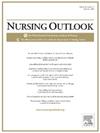以色列患者对男护生的看法:刻板印象、满意度和接受护理意愿的相互作用
IF 3.7
2区 医学
Q1 NURSING
引用次数: 0
摘要
男护理专业学生继续面临着持久的基于性别的刻板印象。这些观念可能会影响患者接受治疗的意愿,特别是在以色列等文化多元的环境中。目的探讨男护生性别刻板印象、护理满意度和接受护理意愿之间的关系。方法:2025年1月至4月,在以色列一家地区医院住院的200名成年人完成了一项横断面调查。讨论:患者报告了接受男护生护理的中高意愿。对关怀的满意度与意愿呈正相关,而对性别刻板印象的强烈认可则呈负相关。结论高质量的护理可以减轻基于性别的偏见。解决刻板印象和提高患者满意度可以改善临床培训环境,并支持男性护理学生在不同医疗保健机构的整合。本文章由计算机程序翻译,如有差异,请以英文原文为准。
Patients’ perceptions of male nursing students in Israel: The interplay of stereotypes, satisfaction, and willingness to receive care
Background
Male nursing students continue to face persistent gender-based stereotypes. These perceptions may influence patients' willingness to receive care, especially in culturally diverse contexts such as Israel.
Purpose
To examine the relationships between gender-based stereotypes, patient satisfaction with care, and willingness to receive care from male nursing students.
Methods
Between January and April 2025, 200 adults hospitalized in a regional Israeli hospital completed a cross-sectional survey.
Discussion
Patients reported moderate-to-high willingness to receive care from male nursing students. Satisfaction with care was positively associated with willingness, whereas stronger endorsement of gender stereotypes was negatively associated.
Conclusion
High-quality care can mitigate gender-based biases. Addressing stereotypes and enhancing patient satisfaction may improve clinical training environments and support the integration of male nursing students across diverse health care settings.
求助全文
通过发布文献求助,成功后即可免费获取论文全文。
去求助
来源期刊

Nursing Outlook
医学-护理
CiteScore
6.20
自引率
7.00%
发文量
109
审稿时长
25 days
期刊介绍:
Nursing Outlook, a bimonthly journal, provides innovative ideas for nursing leaders through peer-reviewed articles and timely reports. Each issue examines current issues and trends in nursing practice, education, and research, offering progressive solutions to the challenges facing the profession. Nursing Outlook is the official journal of the American Academy of Nursing and the Council for the Advancement of Nursing Science and supports their mission to serve the public and the nursing profession by advancing health policy and practice through the generation, synthesis, and dissemination of nursing knowledge. The journal is included in MEDLINE, CINAHL and the Journal Citation Reports published by Clarivate Analytics.
 求助内容:
求助内容: 应助结果提醒方式:
应助结果提醒方式:


